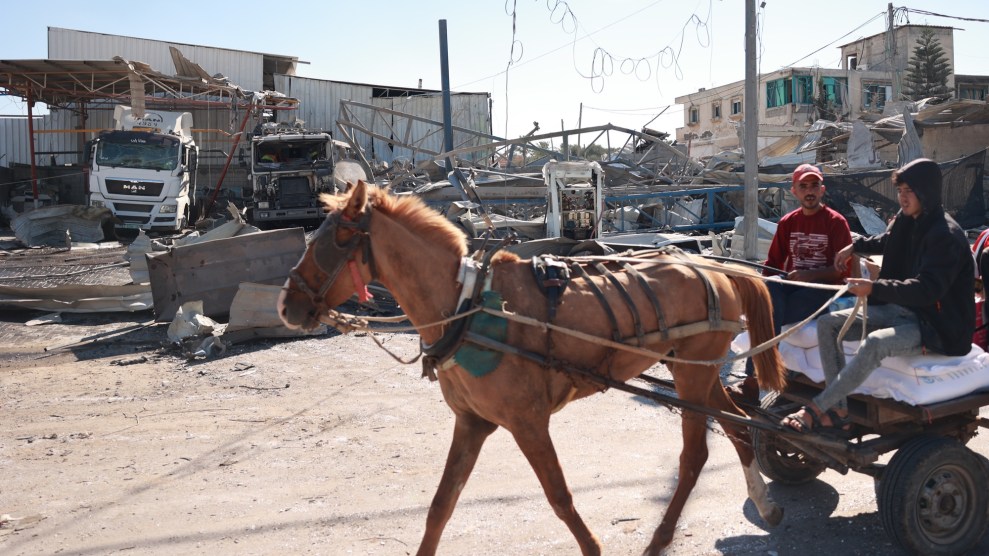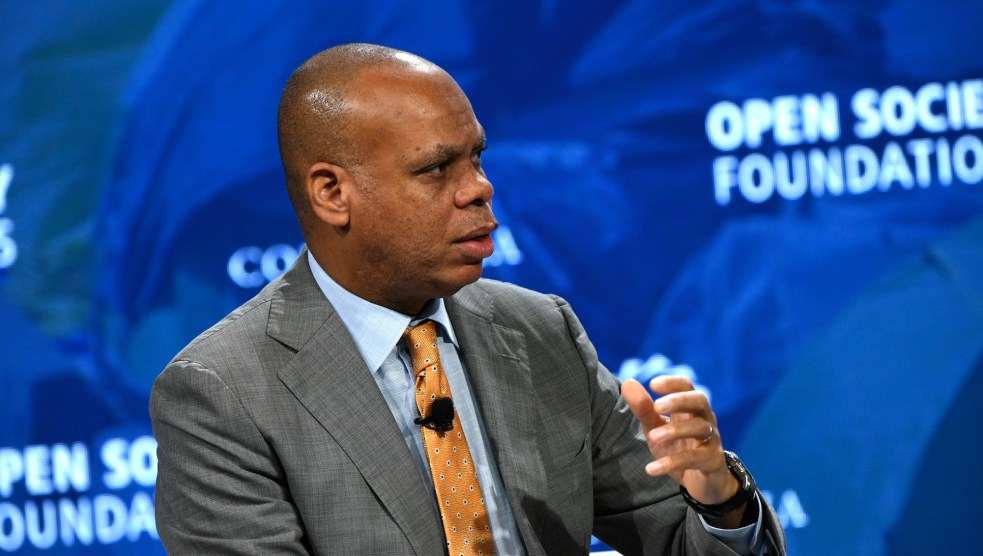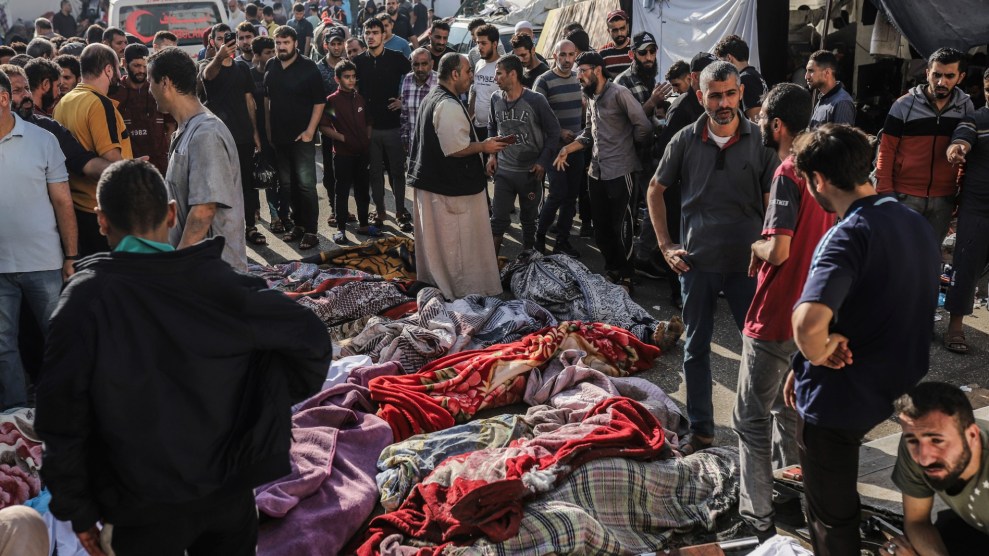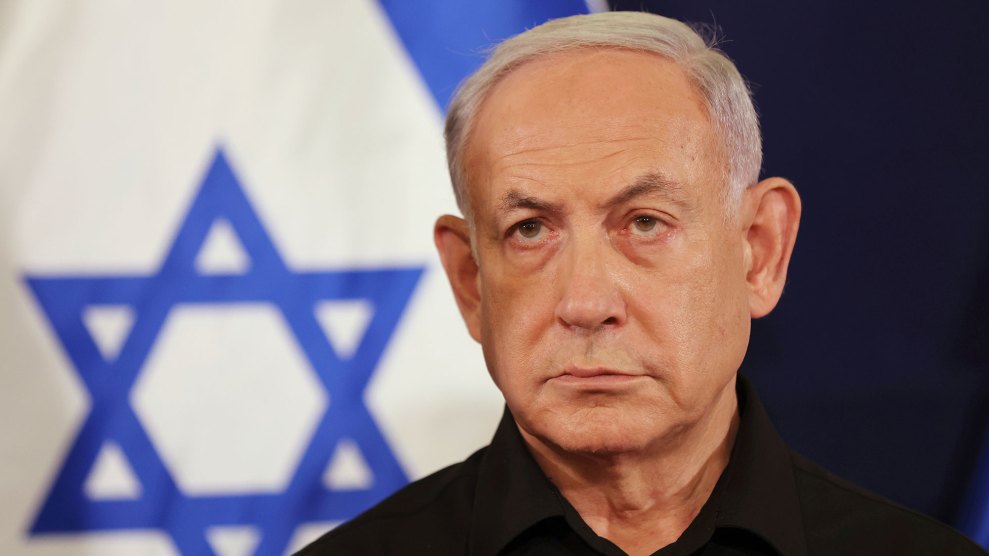
Bashar Taleb/APA Images/Zuma
Philippe Lazzarini, the commissioner-general of the United Nations Relief and Works Agency for Palestine Refugees in the Near East (UNRWA), said on Saturday that Israel is only allowing “half of the daily minimum” amount of fuel needed for humanitarian operations in Gaza. Israel’s decision to allow in any fuel followed weeks of delay and pressure from the United States.
Israel has agreed to permit just 16,000 gallons of fuel per day—equivalent to less than one-hundredth of a gallon per Gaza resident. Lazzarini said in a statement that the amount is “far from enough to cover the needs for desalination plants, sewage pumps, hospitals, water pumps in shelters, aid trucks, ambulances, bakeries and communications networks to work without interruption.” According to UNRWA, failing to increase fuel supplies for the more than two million residents of Gaza will bring severe consequences; the statement provided a bulleted list :
- People will have only two thirds of their daily needs of clean drinking water
- Large parts of Gaza will continue to be flooded with sewage further increasing risks of diseases
- 70 percent of solid waste will not be removed, a major health hazard
- We are forced to handle a reduced number of aid trucks crossing daily into Rafah.
Gazans are in particularly desperate need of fuel because Israel has shut off electricity, forcing the use of backup generators. But Israel has also largely blocked fuel from entering Gaza. Human rights groups consider the restrictions on power and fuel imports to be a form of collective punishment that amounts to a war crime.
“Humanitarian organisations should not be forced to make tough decisions between competing lifesaving activities,” Lazzarini stressed. “Community tensions in a once close-knitted society are likely to increase, making it even more difficult for UNRWA and other organisations to operate in [an] environment of unprecedented humanitarian crisis.”
More than 11,000 people, including more than 4,600 children, have been been killed during the Israeli assault on Gaza that it launched in response to the attack by Hamas on October 7, according to the Gaza health ministry. A senior US official told the New York Times this week that Israel launched its invasion of Gaza with no strategy for minimizing civilian casualties.













